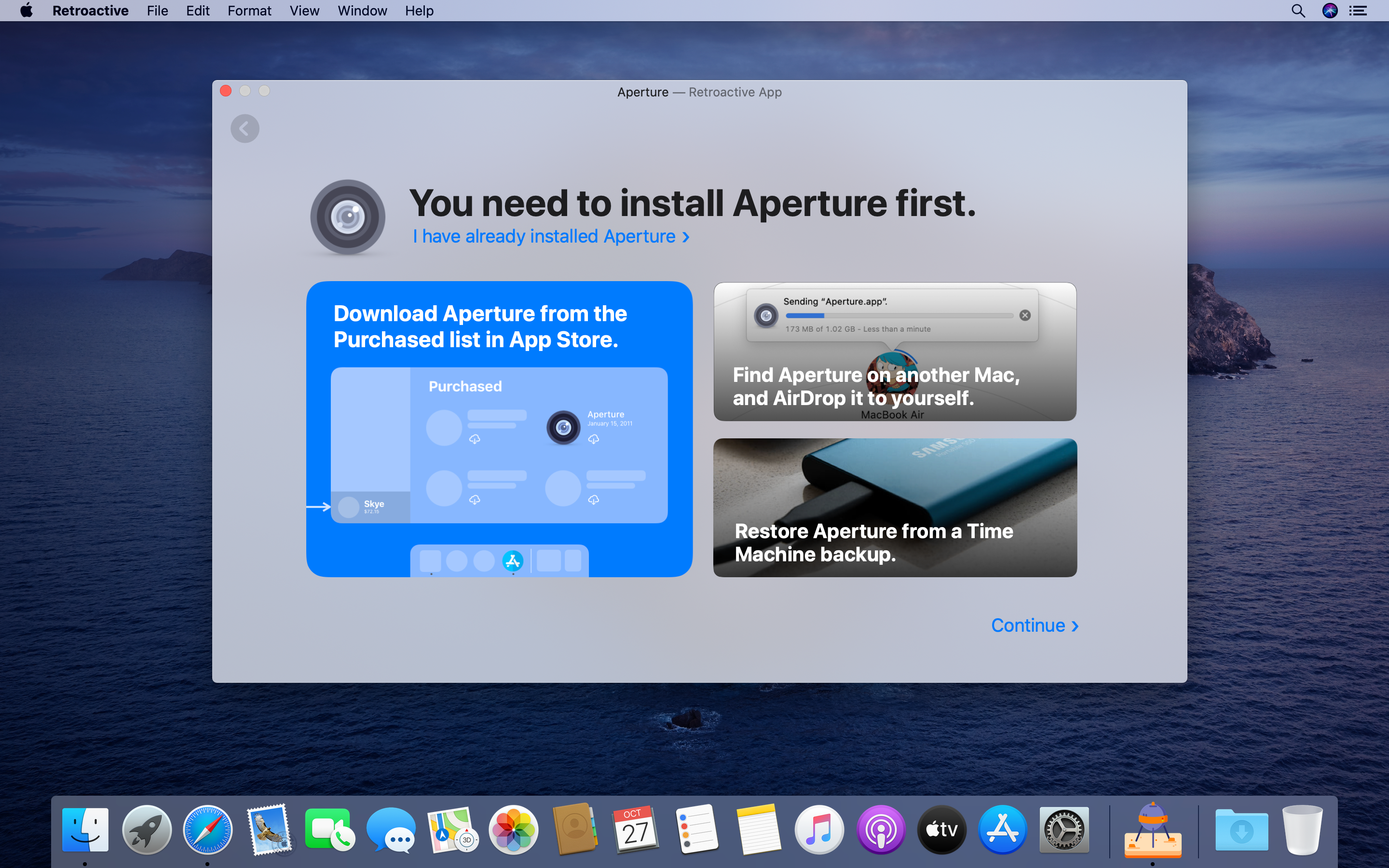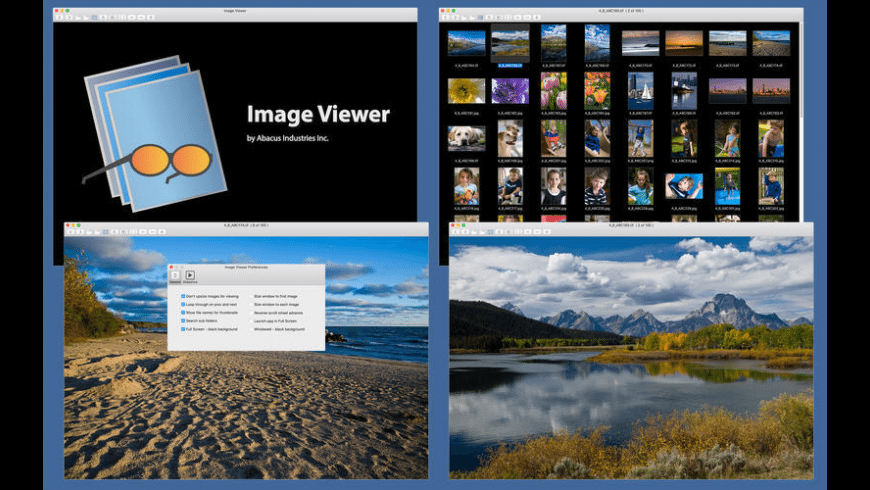고정 헤더 영역
상세 컨텐츠
본문
- Latest Version Of Iphoto For Mac
- Download Iphoto 11 For Mac
- Latest Iphoto For Mac
- Install Iphoto On Mac
Solution 1: Migrate to the Photos app that comes with Catalina. IPhoto does not work starting with Catalina and there is no chance it will work in any future macOS updates. Therefore, your best solution is to get your photos migrated to the new replacement app you have on your Mac. The new Photos app lets you easily import your photos from.
Dec 06, 2019 Apple pulled down the curtains on the fight over the limitations with iPhoto in OS X, with the launch of Photos app as an update. This Photos app allows you to handle your photos in all new way! With improvements in features and functionality, editing and sharing photos have never been so fun. Dec 04, 2019 Download the iPhoto 9 for Mac OS You can download the iPhoto 9 installer file from the below link and make sure that you have the latest operating system for the Mac to make sure that you don’t have any hassles in running the application after installation.
Back up your library
Before following any of these steps, it's a good idea to create a backup of your photo library, even if you use iCloud Photos. You can use Time Machine, use a third-party backup solution, or copy the library to an external drive. By default, your photo library is stored in the Pictures folder within your home folder.
Make sure that your software is up to date
Photos is part of the Mac operating system. You can avoid or fix many issues by running the most up-to-date version of macOS. Learn more about updating the software on your Mac.
If you use RAW images in Photos, learn more about the digital camera RAW formats supported by iOS, iPadOS, and macOS.
If you have trouble migrating an existing iPhoto or Aperture library to Photos
You might see an alert message when you first open Photos or migrate an existing iPhoto or Aperture library. Learn what to do if Photos can’t copy or create a library.
If the Media Browser isn't showing your photos and videos
Use the Media Browser to make images from your photo library available in other apps, like Pages and iMovie. The Media Browser shows only the contents of the Photos library designated as the System Photo Library. If you have more than one Photos library—and the one you're using isn't set as the System Photo Library—the Media Browser won't show its contents.
Follow these steps to designate the current library as the System Photo Library:
- Choose Photos > Preferences.
- Click the General button at the top of the Preferences window.
- Click Use as System Photo Library.
If you're having other issues with Photos

If you're experiencing other issues—like missing or blank photo thumbnails, unexpected behavior, or if Photos won’t open—try to see if it's an issue with your library by following these steps.
Create a new Photos library and see if your issues persist:
- Quit Photos.
- Press and hold the Option key while you open Photos.
- In the dialog that appears, click Create New.
- Give your new library a name, then click OK. Note whether Photos opens successfully with this new library.
To return to your main Photos library, quit Photos. Then open it again while holding the Option key, select your main library, and click Choose Library.
Alternatively, you can open Photos in another user account on your Mac and note whether Photos opens successfully.
If Photos opens with the new library, or in a different user account, it might mean that there's an issue with your library. Follow the steps to use the Photos library repair tool on your main Photos library.
Learn more
Latest Version Of Iphoto For Mac
- Learn how to create and order print products like books or calendars in Photos with Project Extensions.
- Get help with iCloud Photos.
| Developer(s) | Apple Inc. |
|---|---|
| Initial release | January 7, 2002; 18 years ago[1] |
| Final release | 9.6.1 / March 19, 2015; 5 years ago |
| Operating system | macOS |
| License | Proprietary |
| Website | apple.com/mac/iphoto/[dead link] |
| Developer(s) | Apple Inc. |
|---|---|
| Final release | |
| Operating system | iOS |
| License | Proprietary |
| Website | apple.com/ios/iphoto/[dead link] |
iPhoto is a discontinued digital photograph manipulation software application developed by Apple Inc. It was included with every Macintoshpersonal computer from 2002 to 2015, when it was replaced with Apple's Photos application. Originally sold as part of the iLife suite of digital media management applications, iPhoto can import, organize, edit, print and share digital photos.
History[edit]
iPhoto was announced at Macworld 2002, during which Steve Jobs (then-CEO of Apple) also announced that macOS would be installed standard on new Macs from then on, and revealed new iMac and iBook models.[2]
On March 7, 2012, Apple CEO Tim Cook announced an iOS-native version of iPhoto alongside the third-generation iPad.[3]
On June 27, 2014, Apple announced that they would cease development of iPhoto and work on a transition to their new Photos app.[4] On February 5, 2015 Apple included a preview of Photos with a 10.10.3 beta.[5]
On April 8, 2015, Apple released OS X Yosemite 10.10.3, which includes the new Photos app. iPhoto and Aperture were discontinued and removed from the Mac App Store.
With the release of macOS Catalina 10.15 on October 7, 2019, iPhoto became unusable.
Features[edit]
macOS version[edit]
iPhoto is designed to allow the importing of pictures from digital cameras, local storage devices such as USB flash drive, CDs, DVDs and hardrives to a user's iPhoto Library. Almost all digital cameras are recognized without additional software. iPhoto supports most common image file formats, including several Raw image formats.[6] iPhoto also supports videos from cameras, but editing is limited to trimming clips.[citation needed]
After photos are imported, they can be titled, labeled, sorted and organized into groups (known as 'events'). Individual photos can be edited with basic image manipulation tools, such as a red-eye filter, contrast and brightness adjustments, cropping and resizing tools, and other basic functions. iPhoto does not, however, provide the comprehensive editing functionality of programs such as Apple's own Aperture, or Adobe's Photoshop (not to be confused with Photoshop Elements or Album), or GIMP.
iPhoto offers numerous options for sharing photos. Photo albums can be made into dynamic slideshows and optionally set to music imported from iTunes. Photos can be shared via iMessage, Mail, Facebook, Flickr and Twitter. Creating and sharing iCloud Photostreams are possible as well,[7] both public and invitation based ones. iPhoto can also sync photo albums to any iPod with a color display. These iPods may also have an audio/video output to allow photos to be played back, along with music, on any modern television. Additionally, photos can be printed to a local printer, or, in certain markets, be sent over the internet to Kodak for professional printing. iPhoto users can order a range of products, including standard prints, posters, cards, calendars, and 100-page hardcover or softcover volumes—again, such services are available only to users in certain markets.[8]

iOS version[edit]
At an Apple media event on March 7, 2012, Apple CEO Tim Cook announced a new version of iPhoto for use on the iOS mobile operating system.[9] iPhoto for iOS was made available that day on the App Store for US$4.99 alongside the already-released iMovie and GarageBand for iOS. It was officially supported on the iPhone 4 and later, iPod Touch (4th and 5th generations), iPad 2 and later and iPad Mini (1st and 2nd generations), but hackers discovered that it could be installed manually on older devices using Apple's iPhone Configuration Utility.[10][11]
iPhoto for iOS offered a feature set fairly comparable to that of its Mac counterpart. It could organize photos that were synced to the device or taken with its camera. Editing features included color correction tools and photo effects, as well as cropping and straightening tools. iPhoto for iOS lacked tools for creating books, calendars, cards and ordering prints, though it could create 'Photo Journals'—digital photo collages that could be uploaded to Apple's iCloud service and shared.[12]
iPhoto for iOS was highly praised for its professional tools, good performance and compatibility.[13]
iPhoto for iOS was discontinued in 2015 and removed from the App Store in favor of Photos.
See also[edit]
References[edit]
- ^'Apple Introduces iPhoto'. Retrieved May 11, 2012.
- ^'Macworld keynote: New iMac, iBooks, iPhoto'. Geek. January 7, 2002. Retrieved April 10, 2015.
- ^'Apple launches third-generation iPad with hi-res screen, and iPhoto for iOS'. Digital Photography Review. March 7, 2012. Retrieved February 8, 2014.
- ^'Apple To Cease Development Of Aperture And Transition Users To Photos For OS X'. June 27, 2014. Retrieved June 27, 2014.
- ^'Photos preview'. Archived from the original on April 7, 2015. Retrieved September 9, 2017.
- ^'Apple - OS X Mavericks: Supported digital camera RAW formats'. Apple Inc. Retrieved March 14, 2014.
- ^'Apple - iPhoto 9.5: iCloud Photo Sharing overview'. Apple Inc. Retrieved March 14, 2014.
- ^'Apple - Print Products for Mac'. Apple Inc. Retrieved March 14, 2014.
- ^'iPhoto for iOS now available on App Store for $4.99'. Idownloadblog.com. March 7, 2012. Retrieved March 16, 2012.
- ^iPhone Configuration Utility.
- ^Dilger, Daniel Eran. 'New iPhoto and iMovie apps can manually be copied to original iPad'. Retrieved April 22, 2012.
- ^Dove, Jackie. 'iPhoto Version 1.0 Review'. Retrieved April 22, 2012.
- ^Boehret, Katherine (March 13, 2012). 'Letting Your Fingers Do the Photo Editing'. All Things Digital. Retrieved March 16, 2012.
Download Iphoto 11 For Mac
External links[edit]
Latest Iphoto For Mac
- Video of iPhoto introduction at Macworld San Francisco on YouTube
- Original iPhoto TV ad on YouTube





댓글 영역